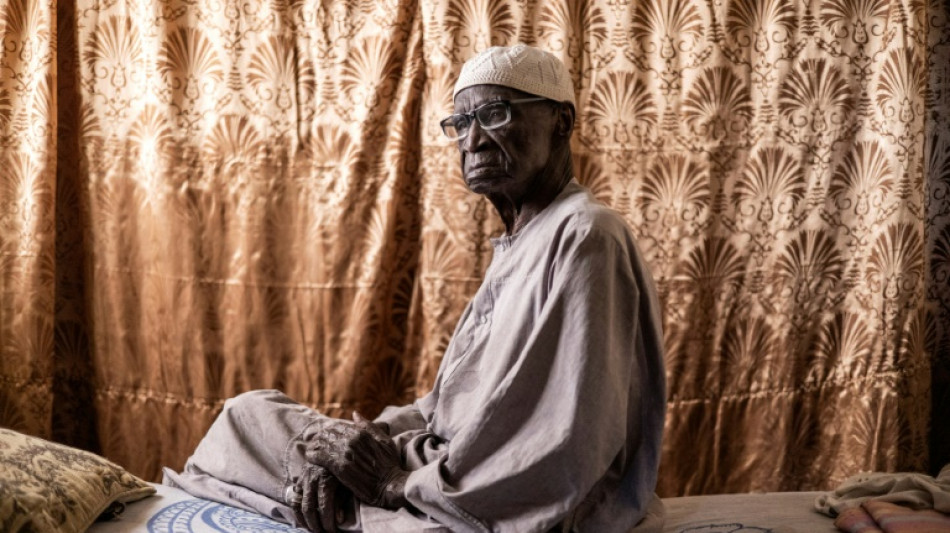
-
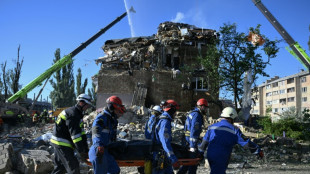 US approves $825 mn missile sale to Ukraine
US approves $825 mn missile sale to Ukraine
-
Rubio to visit Mexico, Ecuador next week to discuss migration, China: US

-
 Lyles edges Tebogo in Zurich thriller in perfect Tokyo boost
Lyles edges Tebogo in Zurich thriller in perfect Tokyo boost
-
Lyles trumps Tebogo in Zurich, Alfred shines

-
 Arsenal optimistic about Havertz return after knee surgery
Arsenal optimistic about Havertz return after knee surgery
-
Pressure-free Wong relishing US Open adventure

-
 RFK Jr bashes US health agency after its chief is sacked
RFK Jr bashes US health agency after its chief is sacked
-
Swiatek wobbles at US Open as Sinner targets third round

-
 Alfred storms to 100m victory at Diamond League finals
Alfred storms to 100m victory at Diamond League finals
-
Bison herds 'reawaken' Yellowstone's prairies

-
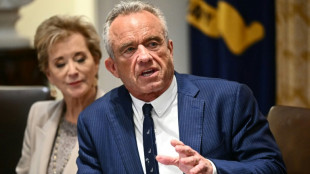 RFK Jr bashes US health agency after firing its chief
RFK Jr bashes US health agency after firing its chief
-
Swiatek labours into US Open third round

-
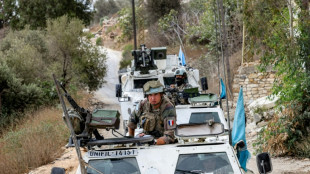 UN sets 2027 exit for Lebanon peacekeepers after Israeli strikes
UN sets 2027 exit for Lebanon peacekeepers after Israeli strikes
-
Brazil police target network that siphoned billions from fuel sector

-
 Liverpool and Man City face Real Madrid in Champions League, PSG get tough draw
Liverpool and Man City face Real Madrid in Champions League, PSG get tough draw
-
'Strangest' dinosaur covered in spiked armoury: scientists

-
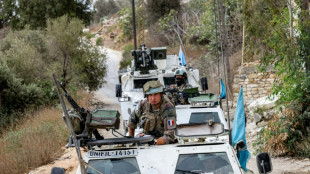 UN Security Council votes for Lebanon peacekeepers to leave in 2027
UN Security Council votes for Lebanon peacekeepers to leave in 2027
-
Badminton federation smoothes feathers ruffled by shuttlecock shortage

-
 Luxury carmaker Lotus to slash UK jobs amid US tariffs
Luxury carmaker Lotus to slash UK jobs amid US tariffs
-
Small parcels in limbo as Trump moves to end US tariff exemption

-
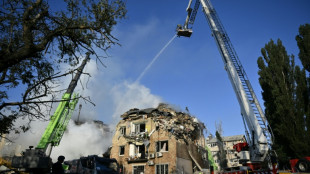 Russian attack killing 19 in Kyiv unleashes international fury
Russian attack killing 19 in Kyiv unleashes international fury
-
UN chief condemns 'endless' Gaza horrors as Israel presses offensive
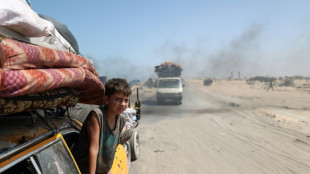
-
 Vine claims solo Vuelta stage six victory, Traen takes lead
Vine claims solo Vuelta stage six victory, Traen takes lead
-
Emma Stone stars in apocalyptic satire at Venice Film Festival

-
 England skipper Aldcroft to miss rest of Women's Rugby World Cup pool phase
England skipper Aldcroft to miss rest of Women's Rugby World Cup pool phase
-
Norris sees others closing gap with dominant McLaren

-
 UK govt seeks to overturn ban on housing migrants in hotel
UK govt seeks to overturn ban on housing migrants in hotel
-
Europe powers move to Iran sanctions 'snapback' over nuclear drive
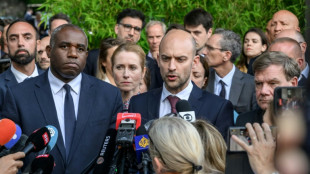
-
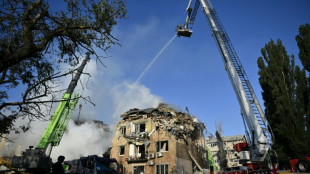 Russian attack kills 18 in Kyiv, unleashes new international fury
Russian attack kills 18 in Kyiv, unleashes new international fury
-
'Ruins': Pakistan's Punjab reels from flood surge
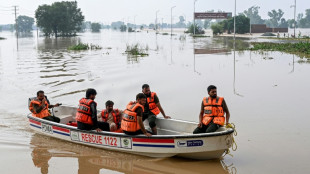
-
 Struggling Hamilton aims to rediscover the joy
Struggling Hamilton aims to rediscover the joy
-
Europe powers move to reimpose UN sanctions on Iran over nuclear drive
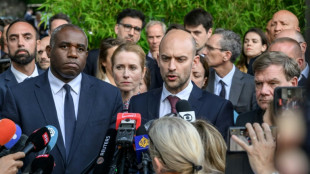
-
 US Fed Governor Lisa Cook sues Trump over move to fire her
US Fed Governor Lisa Cook sues Trump over move to fire her
-
Froome hospitalised after training crash in France

-
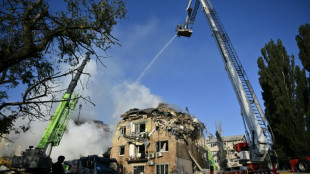 Russian attack kills 17 in Kyiv, unleashes new internatioinal fury
Russian attack kills 17 in Kyiv, unleashes new internatioinal fury
-
Prince Harry to visit UK on anniversary of queen's death

-
 'Something has to change', says Amorim after United humiliation
'Something has to change', says Amorim after United humiliation
-
Stocks mixed after Nvidia record earnings

-
 Actor Micheal Ward in UK court on rape charges
Actor Micheal Ward in UK court on rape charges
-
EU summons Russian envoy after mission damaged in Kyiv strike
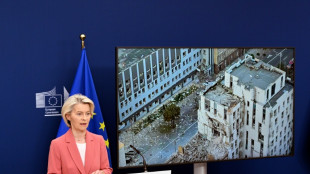
-
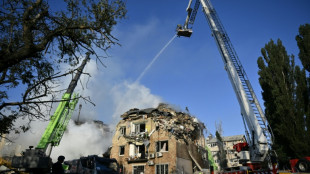 Deadly Russian attack kills 15 in Kyiv, raising fears for peace talks
Deadly Russian attack kills 15 in Kyiv, raising fears for peace talks
-
Swiss court rejects Islamic scholar Ramadan's rape conviction appeal
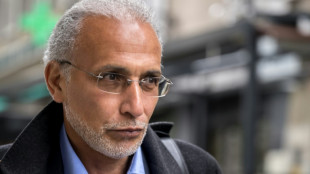
-
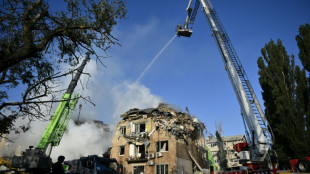 Russian attack kills 14 in Kyiv, including three children
Russian attack kills 14 in Kyiv, including three children
-
Swiss economy set to slow due to US tariffs
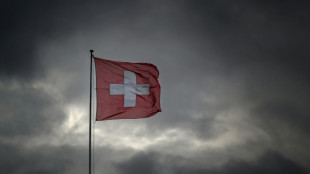
-
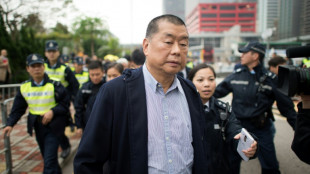 Hong Kong media mogul Jimmy Lai verdict to come 'in good time': judge
Hong Kong media mogul Jimmy Lai verdict to come 'in good time': judge
-
Swiss court rejects Tariq Ramadan rape conviction appeal
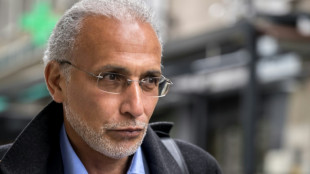
-
 Asian markets mixed after Nvidia earnings
Asian markets mixed after Nvidia earnings
-
Rising Australian golfer makes comeback after losing sight in left eye

-
 Scandal facing sister of Argentina's president: 3 things to know
Scandal facing sister of Argentina's president: 3 things to know
-
Need a pee? Japan has QR code for that


New movie turns spotlight on France's forgotten colonial troops
"They made us join up to wage war," said Ndiogou Dieye, 103, casting his memory back more than eight decades to when he and other young Senegalese donned uniforms to fight for distant France.
"We didn't know where we were going."
The wizened old soldier is one of the last survivors of France's colonial-era African infantry -- a force that fought in two world wars and colonial conflicts in North Africa and Indo-China.
After years of neglect, the troops are the subject of a blockbuster movie, "Tirailleurs," opening in France and Senegal this week, that stars Omar Sy -– best known internationally for the Netflix crime series "Lupin".
Sy plays a Senegalese father who voluntarily enlists in the French army in World War I to keep an eye on his son, who has been forced into uniform. Both are pitched into the horrors of the Western Front.
The "tirailleurs" -- loosely translatable as "skirmishers" -– were born in Senegal in 1857, to forge a corps of lightly armed, mobile troops who would harass the enemy ahead of an advancing main force.
After World War I broke out, France recruited across its West African colonies to transform the tirailleurs into a force designed to hammer the Germans on the Western Front.
They took part in several key battles, notably holding the line at a crucial moment in Verdun in 1916, arguably the most important battle in the four-year-long conflict.
- Toll -
Some 30,000 of the 134,000 tirailleurs who fought in WWI were killed, according to the specialist French magazine Historia.
Survivors were often crippled or scarred by trauma, yet their tale was often relegated to footnotes, and their names never featured on local war memorials in France -- the daily reminder to French people of the cost of the conflict.
High-sounding plans to provide hospitals and pensions were downgraded or sapped by bureaucracy, and tirailleurs sometimes suffered second-class treatment compared with their French counterparts.
In World War II, tens of thousands of tirailleurs fought in sub-Saharan and North Africa and took part in the 1944 landings in southern France.
Dieye said he was recruited in May 1940 in his home town of Thies, about 70 kilometres (45 miles) from Dakar, and joined the Seventh Regiment of tirailleurs.
After basic training near Dakar, his unit was shipped out to Madagascar but had to turn around because of a submarine threat.
It then headed to the French Congo and then to Gabon, where it liberated the capital Libreville from the collaborationist Vichy government "after a few shots," he said.
The regiment was sent to the Middle East to prepare for operations in Europe, but by then, Berlin had fallen.
Dieye returned to Senegal in 1945 as a sergeant, and in the post-colonial period joined the police, retiring in 1972 at the age of 52.
Today, he lives in a house in Thies surrounded by photos and memorabilia from his years of service.
- Anger -
Slow-moving but sharp-eyed, he is bitter towards France, accusing it of "dishonesty".
In December 1944, French troops at a barracks near Dakar opened fire on mutinous tirailleurs demanding back pay for years spent in prisoner-of-war camps.
The official toll of 35 dead is disputed, and the common grave where the soldiers were buried has never been found. The episode remains murky and bitterly remembered in Senegal despite an attempt by former French president Francois Hollande to shed light for reconciliation.
"You send someone to war, he claims his money and you punish him" by killing him, said Dieye, a tone of disgust in his voice.
He reserves his greatest anger for France's failure to pay his military pension, equivalent to 750 euros (dollars) annually, for the past two years.
"France hasn't kept its promise," he said. "I depend on the Good Lord and my children to survive. I get nothing as a former tirailleur. Zilch from France."
A source at the Veterans' Affairs Office at Senegal's armed forces ministry said that after military pensioners reach the age of 100, France usually requires documented proof that they are still alive.
Historian Mamadou Kone said he believed only 10 or so tirailleurs from World War II were still alive in Senegal. The last tirailleur from World War I, Abdoulaye Ndiaye, died in 1998 at the age of 104.
At home, tirailleurs were long "ostracized, considered armed enforcers of French imperialism. Their image was stained," said Kone.
Things changed in 2004, when then president Aboulaye Wade named December 1 as an annual day to commemorate the tirailleurs, enshrining their achievements "in two world wars which freed the world from Nazism and fascism," he said.
M.Furrer--BTB



